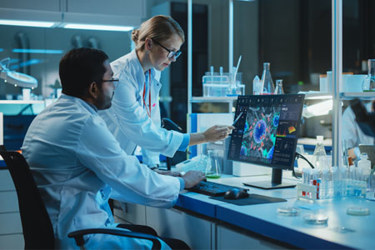Next Generation Sequencing In Viral Safety Testing
By Victor Muthu, Ph.D., Group Leader, Next Generation Sequencing

Adventitious viral agents (AVAs) pose serious risks to the safety and efficacy of biopharmaceutical products, including vaccines, monoclonal antibodies, and cell and gene therapies. Traditional detection methods such as in vivo and in vitro assays often lack the sensitivity and specificity needed to identify low-level or novel viral contaminants. These limitations can result in contamination events, development delays, or even product recalls.
Next Generation Sequencing (NGS) is emerging as a superior alternative for AVA detection. It enables comprehensive, high-throughput analysis capable of identifying both known and unknown viral genomes. Eurofins BioPharma Product Testing in Lancaster, PA has established a dedicated NGS department equipped with advanced sequencing platforms like Illumina's MiSeqDX® and NextSeq2000®, which deliver deep sequencing coverage with high fidelity.
Eurofins’ proprietary Adventitious Agent Detection (AAD) method involves whole transcriptome sequencing of total mRNA extracted from product matrices, followed by cDNA synthesis, barcoding, and library preparation. Their automated bioinformatics pipeline filters out host-derived sequences and matches viral reads against in-house and public viral databases (e.g., RVDB, GenBank). Unidentified or novel viruses are reported separately, ensuring thorough detection. The entire process is designed for GMP compliance and rapid turnaround, generating validated results that can be included in regulatory filings.
NGS is now supported by global regulatory agencies such as the FDA, EMA, and ICH, and is recognized in ICH Q5A(R2) guidance. By replacing slower and less ethical animal-based methods, NGS not only enhances biosafety but also accelerates product development, helping manufacturers deliver safe, effective therapies to patients more efficiently.
Get unlimited access to:
Enter your credentials below to log in. Not yet a member of Cell & Gene? Subscribe today.
